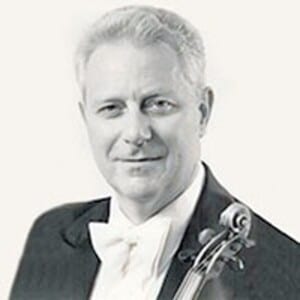Gender neutral NY Times gets its rules and grammar in a twist
NewsFrom the newspaper of wreckers, this week:
Ashton Edwards’s ballet dreams were dashed at age 6. Raised as a boy in the Midwest, Edwards, who is nonbinary and now uses they/them pronouns, had hoped ballet would allow them to explore their truest self. “I wanted to be one of those beautiful, ethereal people on pointe,” they said, referring to the reinforced shoes that allow dancers to stand on the tips of their toes.
An explanation is given for ‘pointe’; none at all for nonbinary.
Go figure.






Some people are nonbinary. It doesn’t need explanation or obsession. Get over it.
I hear they’re writing parallel fifths now as well.
What is there to explain? This is an article about ballet; would you rather they spend half of it explain basic concepts of gender identity rather than talk about dancing? It’s not as if the notion of nonbinary identity were completely unknown.
Before the concept of gender identity existed, nobody worried about it. This went on for thousands of years.
The point is that one person in 300 was suffering.
We don’t know. What we know, is that gender fluidity was mostly seen as an innocent variation. Think of 18C fashion and behavior, or the court at Dijon during the Bourgondian reign, or the brother of Louis XIV (‘Monsieur’) who was a flamboyant feminine crossdresser. Not to speak of east Asian cultures with more than 2 different genders.
The rebellion against restricting prudery and bigottry is a rebellion against 19C mores, before that time things were definitely quite different.
Well, in addition from being inaccurate, that fact does not bear any relevance for the present. Lots of things, concepts, common understandings were normal for hundreds of years before they changed. And while it may be true that an 19th century reader of the New York Times may not have understood what ‘non-binary’ meant, that’s not true of 21st century readers.
pointe is a technical (and French) term, non-binary is a contemporary social term, the general NYT reader is expected to be familiar with the latter but not the former
But you knew that, you just wanted to be provocative and offensive to rouse *your* readers
I love this new language! When there’s more confusion about gender, women get less suppressed & we can get away with things formerly unimaginable. With the use of ‘it’ and ‘they’ and ‘them’ the males first have to stop and think what’s going-on and that gives us an advantage.
It, formerly Sally
You’re so smart.
You can be a music aficionado, let alone a member of the general public (for whom the article was obviously written), without knowing what “pointe” means.
If you don’t know what “nonbinary” means in the context of a gender debate, you’ve been living under a rock for quite a few years. And that is independent of whether you subscribe to the “nonbinary” language or not.
The pointe is that a ballet shoe is part of binary foot wear. So, if a non-binary dancer is wearing pointes, is this a contradiction or not? And if it wears only one pointe? Can there be woke pointes? A whole area of new understanding is opening-up.
The NY Times is assuming that their readers are woke enough not to need an explanation for non binary. Explaining what it means would be condescending whereas understanding French (?) ballet terminology doesn’t enter into the realm of wokeness. (wokesness?) Sorry don’t know how to put it exactly.
Woke means: the vague impression that one is aware of some social injustice hitherto undetected and therefore deserving focus, entirely disconnected from other people observing the same evidence. The verb is a simple one: woking (I woke, you woke, it wokes, and the past tense: I woked, etc.) means: going through material in an excited attempt to find evidence of hitherto undetected social injustice in any area which has never been considered vulnerable to wokeness. And wokeness means: the enlightened mental state of being in the practice of woking, or having just woked, or seeing someone or some people woking or intending to woke in the near future. The collective enthusiasm on finding what wokeness tries to find, is called the Great Awokening.
If “they” was good enough for Shakespeare, it is good enough for the Times.
Singular “they” dates back to Middle English, centuries before Shakespeare.
Well, we readers of the NYT are smart enough to know what non-binary means, as it’s a common, non-specialized term that’s in the news in many context. ‘Pointe’ is a highly specialized term, esoteric and understood by those interested in dance.
Stop being so snarky, Norman.
If this they/them is continued and goes unchallenged, it’s going to make future readers very confused when they read older books: is they/them referring to one person or a group? Language has some rules that evolve over long periods of time and trying to change those rules to satisfy a very small minority is crazy. They/Them are plural. Period. You’d think a newspaper should have higher standards, but then, this is the NYT.
The singular “they” has a history going back to 1375 according to the Oxford English Dictionary. https://public.oed.com/blog/a-brief-history-of-singular-they/
The down votes are amusing. Whether those individuals like it or not, the *fact* is that the singular “they” has existed in English for centuries.
The fact also is that in modern times language has been codified, and a consistent grammar taught in schools for well over a century.
I find it ridiculous that some SMALL group demands a radical and jarring change in grammar because they (plural — the only way I use it) are so “sensitive” over — what? They are not sensitive about which public bathrooms they use, they are not sensitive to the feelings of women, whom they decree “people who menstruate,” thereby changing THEIR “self-identification” to nothing more than a monthly bodily function, they are not sensitive to the opinions of anyone who challenges their right to utter an alternative approach to the definition of the majority sex in the world.
The publications that cater to this nonsense are losing credibility pica by pica.
Yeah, because old writings being difficult to understand is such a new phenomenon. Whole careers are made trying to decipher what Homer or Cicero meant, and yes, that includes grammar.
But fear not, intellectual and literary historians have long grasped how to read statements in linguistic contexts, and that includes ‘what words meant at the time they were written.’
Indeed.
In the future there will be a new branche of linguistics deciphering 21C language when it dealt with people.
New York Times, CNN+, Netflix, Disney World:
“Liberal Looney Tunes”
On 24/7, order now. Please?
‘Building the new woke Tower of Babel’ (David Mamet).
Norman Lebrecht criticizing the Times’ journalism; that’s rich.
In any case, the Times assumes its readers know what “non-binary” means.
Karl Kraus had more than one argument on the tragedy of language degeneration – ruining the language is ruining the world, it’s the essence of the ‘black magic’ as Kraus called it – and the war on civilization goes on today, a little step every day – most people did not learn themselves anything in the latest 90 years.
The extraordinary inversions of the meaning of language currently being practiced by the Russian régime is an apt illustration of what Kraus meant.
In real war situations (when people march and shoot people, when planes drop bombs etc) all words are meaningless since words become first an instrument of propaganda. All words are then necessarily untrue. The winner will later choose the words to write history – untill then I observe only the effective action as far as we are allowed to see.
I fear this is all too true.
Not unknown in the West. Nobody “misspoke” till Nixon’s press secretary Ron Ziegler coined the word; it made news for days as a neologism. Kellyanne Conway, an early Trump mouthpiece, made news that still reverberates because it transcended grammar and became a new Republican ethics: the introduction of “alternative facts” as a synonym for what the rest of us call lies.
The Democrats are not as rich in such coinage: they last made grammatical news when Clinton’s press secretary Mike McCurry spoke of not planning to “parse” a particular statement someone had made. Suddenly everyone on the media seemed to be using “parse,” not always correctly, because they “got” it in his context and it sounded clever (partly because, unlike Ziegler and Conway, he was) and of course they were too idle to look it up and too dim to figure it out if they did, briefly.
Indeed, those expressions are mere compunctuous pericombobulations.
Norman, if you need to know what non-binary means, there are plenty of points of reference on the internet. That aside, the article says that Ashton Edwards prefers to be referred to by the pronouns they/them (rather than he/him), which the NYT appears to be respecting. Unlike you.
Words are not the property of people or media. They are bridges of communication and cannot simply be replaced. Language grows, but replacements of words is another matter. Inventing a new form of English is like atonal modernist music: breaking down understanding between two parties, the sender and the receiver.
Agreed. And I am certainly not buying in until these singular “they”s tell me how to refer to them collectively. Apparently not “men”, or “women”. Do they have a noun as well as a pronoun?
I’d call them “thems”.
But it’s not a replacement. “They” and “them” in reference to an individual as opposed to a group of people was always acceptable and in common usage in the English language.
Also in oldfashioned German, I believe. And the pluralis majestatis of course. But it produces lots of confusion, therefore the custom has been deserted.
I think you’ll find that as you did understand what the article meant, communication works just fine. As for “replacement of words”, that is literally how language works. You’re objecting to the literal foundation of language – it changes with use, sometimes organically, sometimes by design.
I will have to think about it.
When language changes too much, existing texts become less accessible.
It’s the New York Times, John, it’s not exactly Hegel’s Phenomenology.
Pretty sure Joyce took care of that in “Finnegans Wake.”
They inhabit a world where you must notice and yet not notice these things, at the same time. No explanation should be given, for things that should need no explanation, except to bigots, deplorables, people who still speak human etc.
One has to wonder, when people die in Ukraine, in Yemen, in Libya…. do the people who kill address their victims by their chosen pronouns? Dying is easy, grammar is hard!
https://www.youtube.com/watch?v=3OiYrRy3mzE
[Norman, it IS on topic, even ballet is mentioned]
Most people today will be more familiar with “non-binary” than with “pointe”, though.
Wikipedia: “Non-binary identities fall under the transgender umbrella, since non-binary people typically identify with a gender that is different from their assigned sex,[3] though some non-binary individuals do not consider themselves transgender.”
I can buy into the first half of that but I have problems with the second. A VERY small group of people who “consider” themselves uniquely, seem to be dictating to the majority in an aggressive and tyrannical way.
Read Wikipedia on “binary” for a set of nonsense that accuses people of using “power dynamics” if they have a kid and see it’s a boy or a girl and raise it accordingly.
Of course we must be open to divagations from what are considered historical “norms.” Some people are gay, some are intersex, some will wish to transition as a result of discomfort in their own skin.
But transvestism is different from trans-sexualism, and “gender fluidity” just sounds like an inability to make up one’s mind.
In the meantime I will continue to use the pronouns I was educated with, for the sake of clarity and to avoid the inelegance of the quoted paragraph from the NYT. They, by which I mean a plural, should surely “consider” who they choose to have sex with, what their body parts and hormones tell them, and make up their minds.
I might not be so hostile to all this if it were not for the vicious attacks upon perfectly sane people who have dared to claim the physical aspects of women to be more than some exercise of “power dynamics.” If non-binaries want respect, then it is time they started showing it to women in particular, and also to men, doubtless their (plural) next target.
Political correctness is slowly becoming the Faschismus of the Left. I have no intention of changing the English or German I learned in school. If Charley wants me to call him Veronica despite his Chromosoms then I will be happy to oblige.
Once, by way of experiment, I tried to call my difficult uncle Henry, known for his verbal violence, Adèle, to see whether gender identity had any influence at all in a cosy social family setting. But they had to call the police to save me from binary correction.
It
I would also add that “on point” is colloquially used as something which is “perfection”.
e.g. “Her hair is on point today!”
“I wanted to be one of those beautiful, ethereal people on pointe” could be misconstrued as wanting to be perfect.
Nonbinary, obviously, needs little clarification.
Oh, I disagree: what it REALLY needs IS clarification.
Why?
All this will pass. Remember “ebonics?” No one uses it as language.
Every few years, M.I.T. and Harvard intellectuals fluff up language with ideological claptrap, trying to atomize English. This narrow, navel-gazing intellectualizing substitutes for the simple thoughts which could unify all of us, instead of dividing us into the “savy” and the un-“woke.” That is, the ancient words: “Love one another.” And,
“Be ye kind, one to another.” And, “Do unto others as you would have them do unto you.”
Ignore it, and it will go away. Just be nice to people who are swept up by the current Zeitgeist, and to young people discovering who and what they are.
I wonder why the NY Times still has a bad habit of always using “Mr” and “Ms” in front of the names of many of the people they’re (he/she/it?) writing about.
Get with the times, NY Times!
Well, this is a little upsetting to find in my Google feed when I want to keep up to date with classical music. What harm has Edwards done you? How cruel.
What’s wrong with this quote, Norman? It’s grammatically correct.